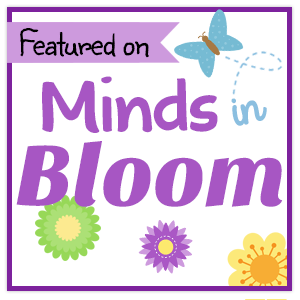In books and articles, they (and possibly you!) are referred to as digital natives. They are the kids who were born into the world of the internet, and have never known a different world. They have never known the dizzying smell of a fresh new purple mimeograph copy landing on their desk, the sight of ink droplets dripping from the nib of a pen dipped in an inkwell, or even a classroom or school without smart boards, iPads, and laptops. Some digital natives are currently as old as thirty-five, and they are in charge. Our students are most certainly digital natives, but do they know and respect the rules of appropriate digital citizenship?
Here are some thoughts I have on the subject. My perspective? Born way too early! I love all things technological and digital and should by rights be a digital native too! I'm a digital grandma! Enough about me. My mind wanders.
The digital natives seated in our classrooms today process information in a very different way than kids of the last century. Using technology is second nature to them, and most know their way around the internet and social media. Their thoughts may flow as easily as a cool ocean breeze from their brains to the keyboard and instantly out into the world. This is not always a good thing. I think there are some things we can try now in the classroom to prepare kids to be better global media citizens now and in their futures.
Paper is still important!
Paper and pen or pencil is a great rehearsal tool. Kids should use it to plan what they will be putting out there for the world to see on a class wiki or website. They should definitely use it to rehearse things they might say to others in comments on the web.
You can see many variations of this all over the internet (a great resource for ideas!) , but the best explanation and model of this comes from a teacher-blogger called "McTeach". I loved to use her paper blogging lesson with my students before assigning each to their own wikipage within our classroom wikipage. These paper blogs make a beautiful display on your bulletin board or walls, and the sticky note comments give kids practice in writing nice comments. The ancient advice from our grandparents before the dawn of the digital age still applies: "If you don't have anything nice to say, don't say anything at all!"
Journals, diaries, and reflections in Interactive Notebooks are all great ways to give kids a chance to rehearse the way they express themselves with words. Make some of these rehearsals meaningful to our digital natives by trying out answers in the format of different social media sites.
Twitter: Write your response in fewer than 140 characters.
Texting: What would a text conversation look like between you and the author of your book? What would it look like between two characters in that book?
Facebook: Write your response as if you are posting it on Facebook. Make a list under what you've written of who might "like" it.
Instagram: Draw a "photo" of the scene and create a hashtag for it.
Blog: What would you write in the "About Me" section of your blog.
Web page: If you could create your own webpage, what would be on it? What would it look like?
These are just a few suggestions to be sure that your kids can rehearse and get feedback on these rehearsals from classmates and from you before "sailing it out" into the world.
When your students are posting online, you might be held responsible for poor digital citizenship. Don't let it happen to you! Rehearse, rehearse, rehearse, and then get parent permission. Start slowly, allowing a few students at a time to post on your class site, Keep it small and manageable at first. Gradually add more students as good role models become established.
While considering those rehearsals, you may find these helpful:

So proud to share this post with an amazing group of teacher bloggers!



























Retta, I love your idea about practicing on paper first, it makes so much sense. That way the kids will learn how to write correctly before they actually do it in cyber-space.
ReplyDeleteI was just about to write the same thing! I am starting a Twitter account for my class this year, and I want my students to tweet something about what we did that day. Now, I think I will start by doing a Twitter bulletin board in the hallway as practice before I let my Twitter Correspondents loose.
DeleteGreat idea to practice on paper and have it hanging so all can see. This brings the point home! Thanks for the great post.
ReplyDeleteI love the idea of paper blogging & rehearsal!! What a great idea & so smart to TEACH appropriate commenting, too!! Love this! thanks!
ReplyDelete